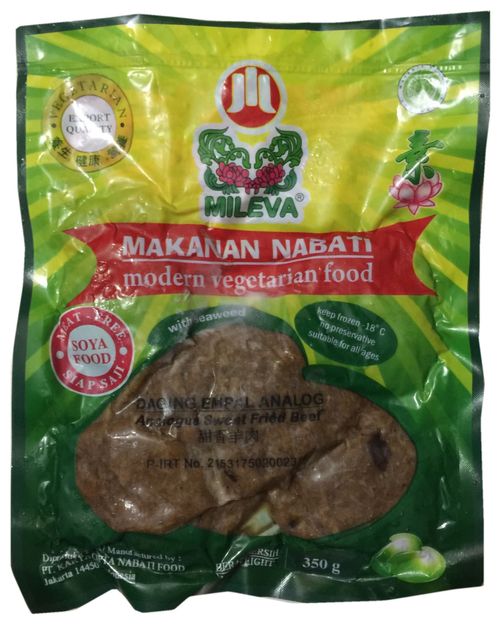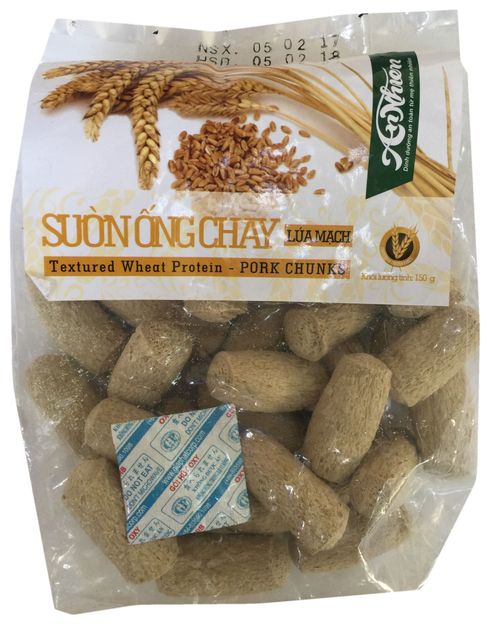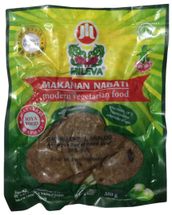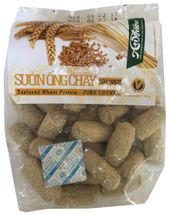Asia is a hot market for new alternative meat formats
After making waves in the United States and Canada, meat alternative producer Beyond Meat has since made its way into Asia, debuting in Hong Kong and Singapore this past year.

Mileva Analogue Sweet Fried Beef with Seaweed, Indonesia This product is said to be a modern soy-based, vegetarian food without preservatives. It is halal certified meat-free and can be prepared in the microwave or frying pan.
Mintel

An Nhien Textured Wheat Protein Pork Chunks, Vietnam This product can be used as a cooking ingredient for frying, stewed dishes, soup, salad and BBQ. It can also be served directly as soy jerky or steak, and is free from borax and preservatives.
Mintel


Made using alternative proteins, Beyond Burger is currently sold at Hong Kong-based grocery shop and restaurant Green Common, as well as burger restaurant Butchers Club and Mezza9’s food truck at the Grand Hyatt Hotel in Singapore. Expanding into affluent cities in Asia has proven to be a successful strategy to increase sales for the company. According to Beyond Meat, sales have quadrupled in the last year since it entered Hong Kong.
Another brand that has drawn extensive media coverage and investors from Singapore and Hong Kong is award-winning food tech company, Impossible Foods. Impossible Foods’ 100% vegan burger patty is made entirely from plants and ‘cooks, smells and tastes like ground beef.’ According to the company, almost half of Impossible Foods’ growth plans are targeted at Asia, which has been described as a ‘really critical market’ by chief strategy officer Nick Halla.
Many Asian markets such as China, Hong Kong and Taiwan already maintain strong cultural or religious traditions of following a vegetarian diet. However, education from social start-ups, food bloggers and promotional activities by restaurants has helped in generating further interest in eating greener and trialling new formats of alternative meats. Mintel research finds that over two in five urban Indonesians are planning to follow a plant-based/vegetarian/vegan diet in 2018, while three in five urban Thais cite avoiding red meat due to health reasons.
More recently, foodservice offerings such as Beyond Meat have successfully filtered Asia’s retail channel, as many of the current offerings comprise of economy products. Such innovations maintain an advantage of gaining a premium perception in the category, as consumers who are seeking to replicate foodservice offerings at home are likely to reach out for these brands.
What’s next
Asia is known to be a vibrant and fast-growing foodservice market, and presents an opportunity for Western meat alternative manufacturers to gain brand recognition and drive product trial. However, education is still needed to convince consumers of the health, environmental and sustainability benefits of choosing these alternative products over meat. Developing retail product ranges that create excitement but fit with local taste will also be key.
Most read news
Other news from the department business & finance

Get the food & beverage industry in your inbox
By submitting this form you agree that LUMITOS AG will send you the newsletter(s) selected above by email. Your data will not be passed on to third parties. Your data will be stored and processed in accordance with our data protection regulations. LUMITOS may contact you by email for the purpose of advertising or market and opinion surveys. You can revoke your consent at any time without giving reasons to LUMITOS AG, Ernst-Augustin-Str. 2, 12489 Berlin, Germany or by e-mail at revoke@lumitos.com with effect for the future. In addition, each email contains a link to unsubscribe from the corresponding newsletter.



























































